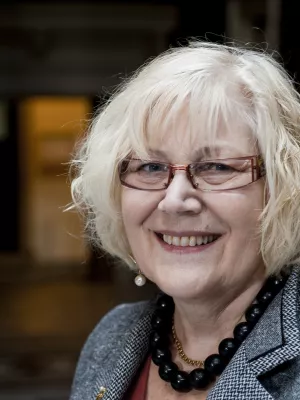
Ingalill Rahm Hallberg
Professor emerita

Loneliness as a predictor of quality of life among older caregivers.
Author
Summary, in English
Aim. This paper reports a study investigating quality of life in relation to loneliness, caregiving, social network, gender, age and economic status among caregiving men and women in a population-based sample aged 75 years or older.Background. Because of demographic changes, in the future more care for older people will be given by informal caregivers who are themselves older. Being old and caring for another older person may affect various aspects of life, such as physical and emotional health and decreased time for respite, which may affect social life and quality of life.Method. A postal questionnaire including the Short Form Health Survey was used. The sample consisted of 4278 people, aged 75 years and over, living in Sweden. Of these, 783 (18) were caregivers.Findings. Caregivers had a larger social network and reported feelings of loneliness less often than non-caregivers. Forty per cent of caregivers helped every day. There were gender differences in experiences of loneliness during the last year, with the frequency of intense feelings of loneliness being higher among women. Loneliness and a small or non-existent network were significantly associated with low quality of life among caregivers, as well as in the total sample. The results showed significant association between loneliness, weak social network and low mental quality of life.Conclusions. The fact that loneliness was the most important factor predicting low quality of life among caregivers, as well as older people in general, indicates that it is crucial in the care of older people. From a nursing perspective, the findings indicate the advantage of helping older people to keep up and develop their social networks. Nursing care should involve steps to maintain the social network before an older person becomes too weak, since decreased health status makes social contacts more difficult.
Department/s
- Department of Health Sciences
Publishing year
2005
Language
English
Pages
23-32
Publication/Series
Journal of Advanced Nursing
Volume
49
Issue
1
Full text
- Available as PDF - 93 kB
- Download statistics
Links
Document type
Journal article
Publisher
Wiley-Blackwell
Topic
- Nursing
Status
Published
ISBN/ISSN/Other
- ISSN: 0309-2402

